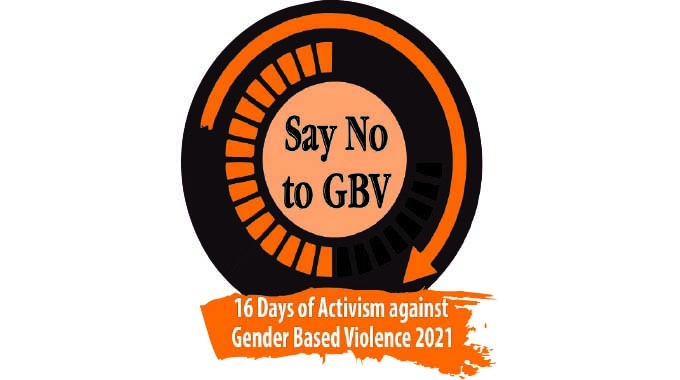Fall in fish catches triggers GBV

Walter Nyamukondiwa
Kariba Bureau
The link between falling incomes and rising gender-based violence is now being experienced in Kariba as falling fish catches are triggering increased domestic violence, quite often by aggrieved wives, as a result of low incomes and job losses.
A significant number of people in Kariba are employed in the fishing industry, particularly on the kapenta rigs, where a boat has an average crew of four people.
The increase in domestic violence cases mimics the national and global trends following disruptions caused by the Covid-19 pandemic.
It comes when the nation and the world is observing 16 Days of Activism against Gender-Based Violence.
At least one in three women have endured domestic violence, mostly at the hands of close family members.
While women are mostly at the receiving end of domestic violence, there is a growing number of men who suffer violence at the hands of their spouses.
National Aids Council (NAC) male mobiliser for Kariba Ward 6, Mrs Asmin Chikukwa, said falling catches had caused an increase in domestic violence.
“We work with men and issues of domestic violence come up. It’s worth noting that during our dialogue sessions, some men confess to being attacked by their wives,” said Mrs Chikukwa.
The trend of domestic violence has been increasing as husbands struggle to explain the drop in incomes to their wives.
In some instances, wives become violent towards their husbands while the reverse is also true.
Mrs Chikukwa has handled at least 15 cases of domestic violence in the last few months with men also coming forward during their dialogue session with allegations that they were being abused.
Social and economic shocks are known to trigger undesirable outcomes such as domestic violence, child marriages and spread of diseases among others.
Fishers are usually paid relative to their catches meaning the bigger the catch, the more they take home.
They usually get 10 cents per every kilogramme of kapenta that they catch. Some catch as little as a tray weighing around 60kg per night, meaning they gets around US$6 for the day.
However, when days are good, they get more than a tray which translates to more money for the fishers.
Some fishers interviewed said things were not looking good for them as catches are dwindling resulting in low incomes.
“We are just coming from the full moon stoppage where fishers have a week with their families and having fun is one of the main attractions,” said Jameson Kanda.
There has been a progressive decline in catches over the last 20 years, which has seen some companies closing and workers losing their jobs.
Future sustainability of the kapenta fishing industry in Lake Kariba hangs in the balance as catches are now about a quarter of the peak recorded in 1999.
Poaching and over-exploitation of the resource have been cited as leading to the decline in catches. Almost 2 000 kapenta fishing boats are operating in the lake against the recommended 500 boats for sustainable and optimal catches.
Of major concern has been the increase in the number of unregistered boats, poaching and fishers operating in restricted areas including river mouths.
The industry reached its peak of around 30 000 tonnes in 1999 before the progressive decline set in, reaching a low of around 8 000 metric tonnes in recent years.
Zimbabwe Kapenta Producers Association chairman Mr Chatwell Tanga said concerted effort was needed to reverse the decline.
“The number of vessels in the lake is now more than three times the stipulated number for optimal catches,” said Mr Tanga.“The future sustainability of the industry is under threat. Zambia has around 1500 vessels while Zimbabwe has around 400 registered rigs. Several unregistered and unaccounted for boats are increasingly operating in the fishing basins raising questions on the future sustainability of the fishing industry.”
Operators are illegally fishing in shallow waters of less than 20 metres in contravention of conditions of fishing permits.
Low water levels in basins 1 and 2 including Binga have seen others moving to basins 3 and 4.
Another major challenge was that some operators were fishing within 2km of the shoreline while the need to augment catches has resulted in operators stealing from each other.
That has affected gathering of data on catches as illegal operations and what they produce is not accounted for.









Comments